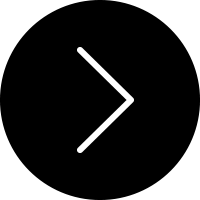Torah Studies - Limudei Kodesh
Through the Mesivta's Torah studies curriculum, students will accumulate a broad knowledge of Torah concepts. The courses are structured to enable students to develop textual and analytical skills, which will equip them for independent in-depth study. Emphasis is also placed on appreciating the Torah’s insight into all aspects of life.


General Studies
The Mesivta’s general studies program is designed to prepare our students to excel in whatever career they choose to pursue. Emphasis is placed on mastering skills such as critical thinking, analytical writing, and problem solving, in order to ready our graduates for college and success in the 21st-century workforce.
Gemara - Iyun
Talmud in-depth
In the Gemara Iyun shiur, the Rebbi will engage the students in actively exploring the Gemara’s reasoning, focusing on the commentaries of Rashi and the Tosafos. Together, the Rebbi and students will carefully and methodically analyze the give-and-take of the Gemara. Through this interactive process, the Rebbi will guide the students in developing robust textual and analytical skill sets, which will ultimately enable them to experience the fulfillment of independent in-depth Gemara study.


Gemara - Bekius
Faster-paced Talmud
The Gemara Bekius shiur covers a larger amount of Gemara, serving to expand the students’ knowledge of Gemara concepts and familiarize them with key Gemara vocabulary, syntax, and patterns of reasoning.
Chumash
The Rebbi and students will carefully study the Chumash together with Rashi, Ramban, and other classic commentaries and arrive at a deeper understanding of the Chumash. Students will glean insights into the Torah’s outlook on life, human nature, and man’s relationship with Hashem.


Halacha
Jewish law
Students will learn various topics of halacha pertaining to daily living, including Tefillah, Brachos, and Shabbos. They will examine the principles underlying the halachos and study their practical application.
Mussar
Jewish ethics
Rebbeim will emphasize the importance of character development, as well as the relevance and application of the Torah’s perspective to life in the 21st century. Through informal discussions throughout the week, as well as the Mussar Shmuess on Friday, the Rebbeim will expose the students to the importance and value of personal growth, self-awareness, and self-actualization, and give practical, down-to-earth guidance on how to implement these ideals in their own lives.

Science
Students will develop their understanding of the sciences and become proficient in developing and using models, analyzing and interpreting data, and constructing explanations of scientific phenomena. They will learn about the interdependence of science, engineering, and technology and their influence on society and the natural world. Emphasis is also placed on analyzing major global challenges and designing, evaluating, and refining solutions.


Math
Students will develop mathematical understanding and learn to justify the reasoning and derivation of mathematical statements and rules. They will analyze problems and identify entry points to their solutions; represent the problem symbolically; construct viable arguments and justify their conclusions; and apply the mathematics they know to solving problems in everyday life, society, and the workplace.
Social Studies
Knowledge of one’s past and a sense of one’s place is fundamental to the development of responsible citizenship. Students will investigate events, issues, and personalities from multiple perspectives and evaluate information and ideas to develop informed opinions and creative solutions. They will understand how history connects to current world issues and be empowered to actively participate in civic and community life.

English Language Arts
Through reading works ranging across genres, cultures, and centuries, students will develop the capacity to evaluate intricate arguments and synthesize complex information. They will determine central ideas and themes and make logical inferences; examine how the author’s point of view or purpose shapes the content and style of the text; and assess the credibility and accuracy of each source. In turn, they will produce their own clear and coherent writing, asserting and defending claims using valid reasoning and relevant and sufficient evidence.







